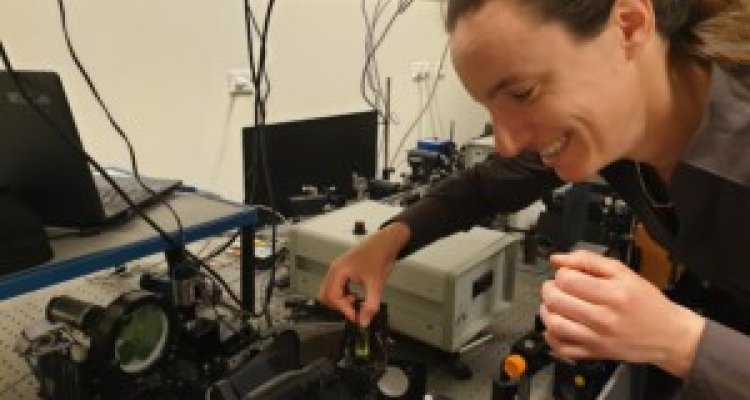
Alumnus testimonial
Alumnus Emilie Wientjes - MSc Molecular Life Sciences
“I am Emilie Wientjes, I studied the BSc and MSc Molecular Life Sciences (BML and MML, respectively) at WUR. During the masters I chose the specialization Physical Biology which allowed me to combine my interest in biology and physics."
When I get the opportunity to learn new things I often notice that the background I gained during my study Molecular Life Sciences provides a good basis
Why Molecular Life Sciences
"After high school I was looking for a study program where I could combine physics, chemistry, biology and mathematics. I found that in the BSc Molecular Sciences. For the master I still wanted to combine different disciplines and this was possible with MML. At the WUR, MML already existed long before other Dutch universities started to offer this combination. Thus, the WUR has a lot of experience in the field. You get a nice blend of different courses which prepare you to work in various disciplines. The MSc internship and MSc thesis in the program allow you to gain valuable work experience."
Career in a nutshell
"I moved from Wageningen to Groningen for my PhD where I combined microscopy, spectroscopy and biochemistry to investigate the photosynthetic light-harvesting reaction. After a short postdoc at the Free University in Amsterdam I moved for two years to the Institute of Photonics Sciences in Barcelona. I used plasmonic nanoantenna to manipulate the interaction between light and light-harvesting complexes. Afterwards, I am back in Wageningen as an Assistant Professor at the Laboratory of Biophysics. With my team we use a range of techniques aiming to understand how plants and other photosynthetic organisms manage to thrive and survive under various light conditions."
A good basis
"To investigate how plants absorb light energy and use it to drive photosynthesis you need to have a background in various topic. A couple of these techniques include: optical spectroscopy to understand which wavelengths of light are absorbed and how the energy is transferred between pigments, biochemistry to know which proteins are present and how their expression levels are regulated, molecular biology to modify proteins, and microscopy to visualize what is happening. During my MSc I had the opportunity to get experience with these different fields. Even now I still benefit from the background I gained during my study, when I get the opportunity to learn new things. For instance, when I went to Spain nanophotonics was a new world for me, but my background in physics and spectroscopy allowed me to catch up quickly."
Some advice
"My career advice would be to always choose something that you are interested in. There is probably not a single right choice, but also not a wrong choice as long as you like it.”